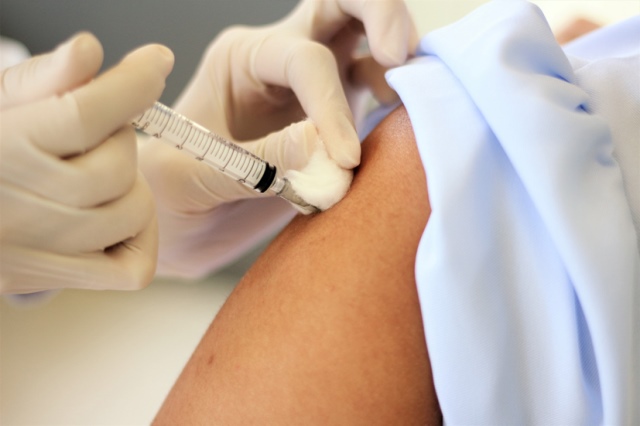The UK Health Security Agency (UKHSA) has unveiled its “world-leading” Vaccine Development and Evaluation Centre (VDEC), which is building on its pandemic legacy and helping develop life-saving new vaccines for the UK and worldwide.
The centre is situated at the UKHSA’s Porton Down site, where it is co-located with other services delivered separately by partners including the Defence Science and Technology Laboratory.
The creation of the centre, in over 2,800 square meters of laboratory space at Porton Down, is a major part of UKHSA’s 3-year strategy and incorporates over 200 leading scientists working on around 100 wide-ranging projects, including tackling deadly pathogens with pandemic potential.
Its work involves supporting the development of new vaccines by testing and evaluating them against threats capable of causing a health emergency. The Centre’s work is conducted throughout the vaccine lifecycle, from early in the vaccine product design through to evaluating vaccine effectiveness, which continues when new variants arise.
In particular, the centre will target pathogens for which a vaccine does not exist or is not regulated in the UK, or could be improved, such as avian influenza, mpox (monkeypox) or hantavirus, a severe infection that can pass from rodents to humans.
In one example of its work, VDEC’s teams are already running phase one clinical trials for what could be a world-first vaccine against Crimean-Congo haemorrhagic fever, a virus that is spread by the bite of an infected tick and is sadly fatal in about 30% of cases.
They are also targeting common infections like tuberculosis (TB) and Clostridium difficile, a bacterial infection that can cause significant problems in healthcare settings.
Building on capabilities developed during the COVID-19 pandemic to test emerging vaccines against new variants, VDEC has been created to take that work forward and expand its remit to a wide range of other deadly pathogens and diseases.
The centre has a unique set of capabilities specialising in high consequence infectious diseases and working to the highest standards of safety, quality and security, making its research and outputs trusted worldwide.
Professor Dame Jenny Harries, Chief Executive of UKHSA, said: “VDEC is a hugely exciting step-change for the UK’s vaccine research and development capabilities and a vital component of UKHSA’s critical work highlighted in our 3-year strategy, including preparing the UK against many of the biggest infectious disease threats.
“VDEC is a unique facility in the UK, delivering multiple critical early pre and post clinical research and evaluation studies in a single research facility. This essential work will lead the way over the coming years in our fight against potentially deadly pathogens, further enhancing the UK’s credentials as a global science superpower.
“As well as building on the legacy of the pandemic caused by COVID-19, VDEC will target a wide range of other deadly viruses and pathogens, helping to secure the health and prosperity of the UK and saving lives around the world.”
VDEC’s work also forms a crucial role in the UK’s contribution to the global 100 Days Mission, launched in 2021 under the UK G7 presidency with the ambitious aim of deploying an effective vaccine within 100 days of identifying a new pandemic threat.
A report published by UKHSA finds the UK is making important progress towards these ambitions in 6 key areas, including vaccines research, development and manufacturing.
Professor Isabel Oliver, Chief Scientific Officer of UKHSA, said: “VDEC will play a vital role in delivering the 100 Days Mission, an important initiative to make sure the world is better prepared for the next pandemic by accelerating the development of diagnostics, therapeutics and vaccines so that we can control new threats before they have the impact that COVID-19 has had.
“I am proud that the UK has embraced this mission and is leading globally in identifying and tackling ongoing and emerging health threats. UKHSA’s scientific capacity and capability continues to develop and play a significant role on the global, national and local stage.”
Secretary of State for Health and Social Care, Steve Barclay, said: “This new centre cements the UK’s global position spearheading pandemic preparedness, vaccine development, and scientific discovery.
“Hundreds of the world’s leading scientists are already in the centre working on vaccines against potential global health threats to protect the UK and save lives across the world.
“This state-of-the-art complex will also help us deliver on our commitment to produce new vaccines within 100 days of a new threat being identified.”


